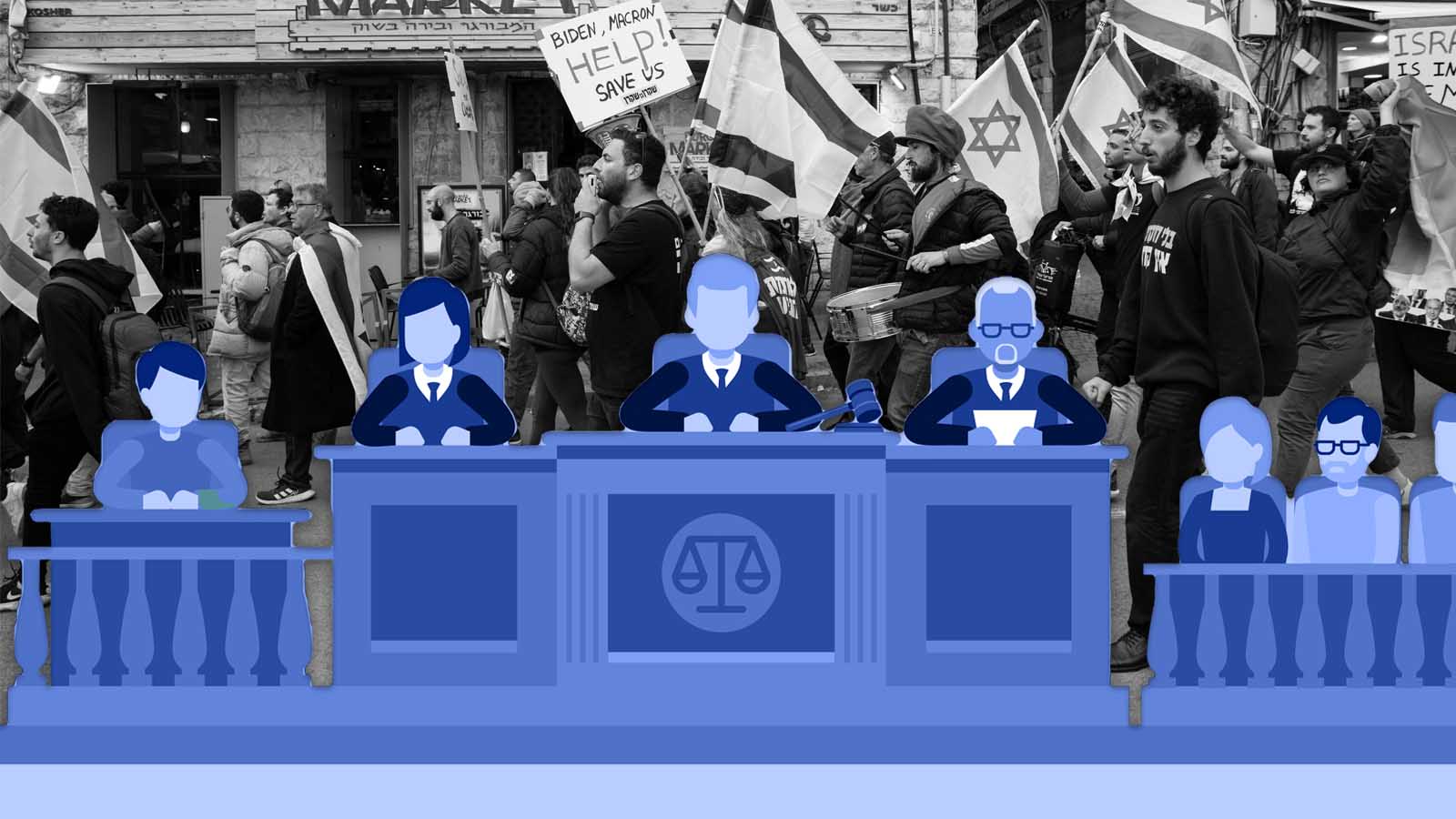Is Bibi-ism possible without Bibi?


A free daily email with the biggest news stories of the day – and the best features from TheWeek.com
You are now subscribed
Your newsletter sign-up was successful
The Netanyahu era appears to be coming to an end in Israel. Yesh Atid Party leader Yair Lapid announced Wednesday that the "change coalition" has support to form a government from an extraordinarily broad array of parties, from the ultranationalist settler-oriented Yamina Party, whose leader, Naftali Bennett, would be the coalition's first prime minister (and who will also be the first religiously-observant Orthodox prime minister in Israel's history), to the left-wing Meretz Party. It would also be the first Israeli government supported by an independent Arab party, the Islamist Ra'am, led by Mansour Abbas.
That breadth, and the extreme ideological diversity that it implies, is one reason to question the coalition's staying power. But it's also an explicit rebuke to Netanyahu's entire mode of politics. Netanyahu is not the most right-wing figure in Israeli politics — Bennett's party is far more extreme in its positions on the territories, for example — nor does he have the most aggressive record in foreign policy. What has always distinguished his career has been the divisiveness of his politics, defining whole segments of the citizenry (Arabs and left-wing Jews) as unpatriotic enemies of the state, and positioning himself as the nation's only true defender. The mere possibility of a left-right coalition, a coalition that includes Jewish settlers and Arab Islamists, gives the lie to the worldview upon which Bibi-ism depends.
What looms next for Netanyahu is his corruption trial. But the more important question for Israel's future is what's next for Bibi-ism, whether his mode of politics can survive him and continues to define the Israeli right. They should hope it doesn't, if only because it has plainly reached the point of not only diminishing but negative returns. Israel has, through four elections, been unable to establish a stable government because the leader of its right-wing majority has lost the support of the majority of the citizenry, yet retained the overwhelming backing of his own faction. That paradox is a natural consequence of Netanyahu's politics of division.
The Week
Escape your echo chamber. Get the facts behind the news, plus analysis from multiple perspectives.

Sign up for The Week's Free Newsletters
From our morning news briefing to a weekly Good News Newsletter, get the best of The Week delivered directly to your inbox.
From our morning news briefing to a weekly Good News Newsletter, get the best of The Week delivered directly to your inbox.
If the Israeli right, and Israel as a whole, wants to escape that trap, it needs leadership that will eschew his kind of politics and seek to represent the entire nation.
A free daily email with the biggest news stories of the day – and the best features from TheWeek.com
Noah Millman is a screenwriter and filmmaker, a political columnist and a critic. From 2012 through 2017 he was a senior editor and featured blogger at The American Conservative. His work has also appeared in The New York Times Book Review, Politico, USA Today, The New Republic, The Weekly Standard, Foreign Policy, Modern Age, First Things, and the Jewish Review of Books, among other publications. Noah lives in Brooklyn with his wife and son.
-
 Political cartoons for February 20
Political cartoons for February 20Cartoons Friday’s political cartoons include just the ice, winter games, and more
-
 Sepsis ‘breakthrough’: the world’s first targeted treatment?
Sepsis ‘breakthrough’: the world’s first targeted treatment?The Explainer New drug could reverse effects of sepsis, rather than trying to treat infection with antibiotics
-
 James Van Der Beek obituary: fresh-faced Dawson’s Creek star
James Van Der Beek obituary: fresh-faced Dawson’s Creek starIn The Spotlight Van Der Beek fronted one of the most successful teen dramas of the 90s – but his Dawson fame proved a double-edged sword
-
 Netanyahu’s reforms: an existential threat to Israel?
Netanyahu’s reforms: an existential threat to Israel?feature The nation is divided over controversial move depriving Israel’s supreme court of the right to override government decisions
-
 A country still in crisis: Lebanon three years on from Beirut blast
A country still in crisis: Lebanon three years on from Beirut blastfeature Political, economic and criminal dramas are causing a damaging stalemate in the Middle East nation
-
 The past controversies of Benjamin Netanyahu
The past controversies of Benjamin NetanyahuUnder the Radar The Israeli prime minister has been in hot water before
-
 Israel on edge, Netanyahu hospitalized ahead of Supreme Court overhaul vote
Israel on edge, Netanyahu hospitalized ahead of Supreme Court overhaul voteSpeed Read
-
 Jenin and the endless cycle of Palestinian displacement
Jenin and the endless cycle of Palestinian displacementfeature Refugee camp at the heart of a struggle around demographics, displacement and mobility
-
 Netanyahu brings Israel to a crossroads
Netanyahu brings Israel to a crossroadsfeature The prime minister was ‘forced to pause’ his ‘ambitious plan’ to weaken country’s supreme court
-
 Why are Netanyahu's judicial reforms so controversial?
Why are Netanyahu's judicial reforms so controversial?In Depth Opponents have warned the government's suggested reforms could be the end of democracy in Israel
-
 Israel reportedly behind drone attack on Iranian military-linked warehouse in Isfahan
Israel reportedly behind drone attack on Iranian military-linked warehouse in IsfahanSpeed Read
